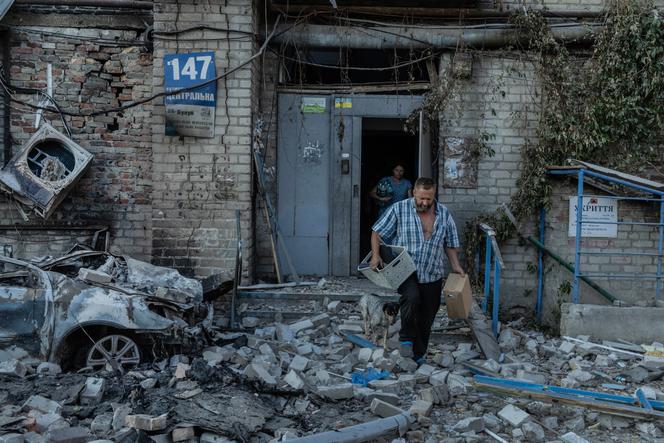


The evening of Monday, August 7 seemed calm in Pokrovsk, eastern Ukraine, with the city center bathed in the reddish light of a late summer's day. But at around 7:15 pm, as Ilya Myrontsev was leaving work and preparing to head home, the first explosion rocked the city.
The 16-year-old remembers having the presence of mind to throw himself to the ground. "If I hadn't ended up on the ground, I would surely have been hit by the flying debris," he said on Tuesday, the day after the Russian attack on the town which, prior to the war, had a population of 60,000. "I was covered in dust," he added. Once up, Myrontsev immediately headed for a shelter to avoid falling victim to a second Russian missile strike.
A few minutes after the first strike on the residential building near where he lives, which also has a pizzeria on the ground floor, Ivan, a pensioner, rushed in with other neighbors to rescue the wounded from the rubble. "For the first 15 minutes, it was just us helping them," said Ivan, who is in his seventies. "Then some guys in uniform came," he continued, "they started helping people while warning them that they had to take shelter because of the risk of a second strike."
At around 7:50 pm, a second Russian missile crashed into the Hotel Drujba (which means "friendship" in Ukrainian), just a few meters from the residential building. "I had hidden between some cars," said Ivan, who escaped unhurt. Back at the scene of the explosion, he saw that dozens of rescue workers and policemen caught in the blast were on the ground, injured. "They were evacuating people who were content to live quietly, without bothering anyone," he said bitterly.
On Tuesday, the air in the town, some 40 kilometers from the front line, seemed to freeze around the tragedy. The final search to evacuate civilians buried under the rubble was completed by late afternoon. In his evening address, Ukrainian President Volodymyr Zelensky reported nine dead and 82 wounded.
Regarding the latter figure, the head of the Donetsk region military administration, Pavlo Kyrylenko, said it included 31 policemen, seven employees of the state emergency service and four servicemen. "All [the police officers] were there because they were needed, they devoted their efforts to rescuing people after the first strike," said Ivan Vyhivskyi, head of the Ukrainian national police force. "They knew that under the rubble there were wounded people, they had to react, dig, recover, save. And the enemy deliberately struck a second time."
You have 44.87% of this article left to read. The rest is for subscribers only.
